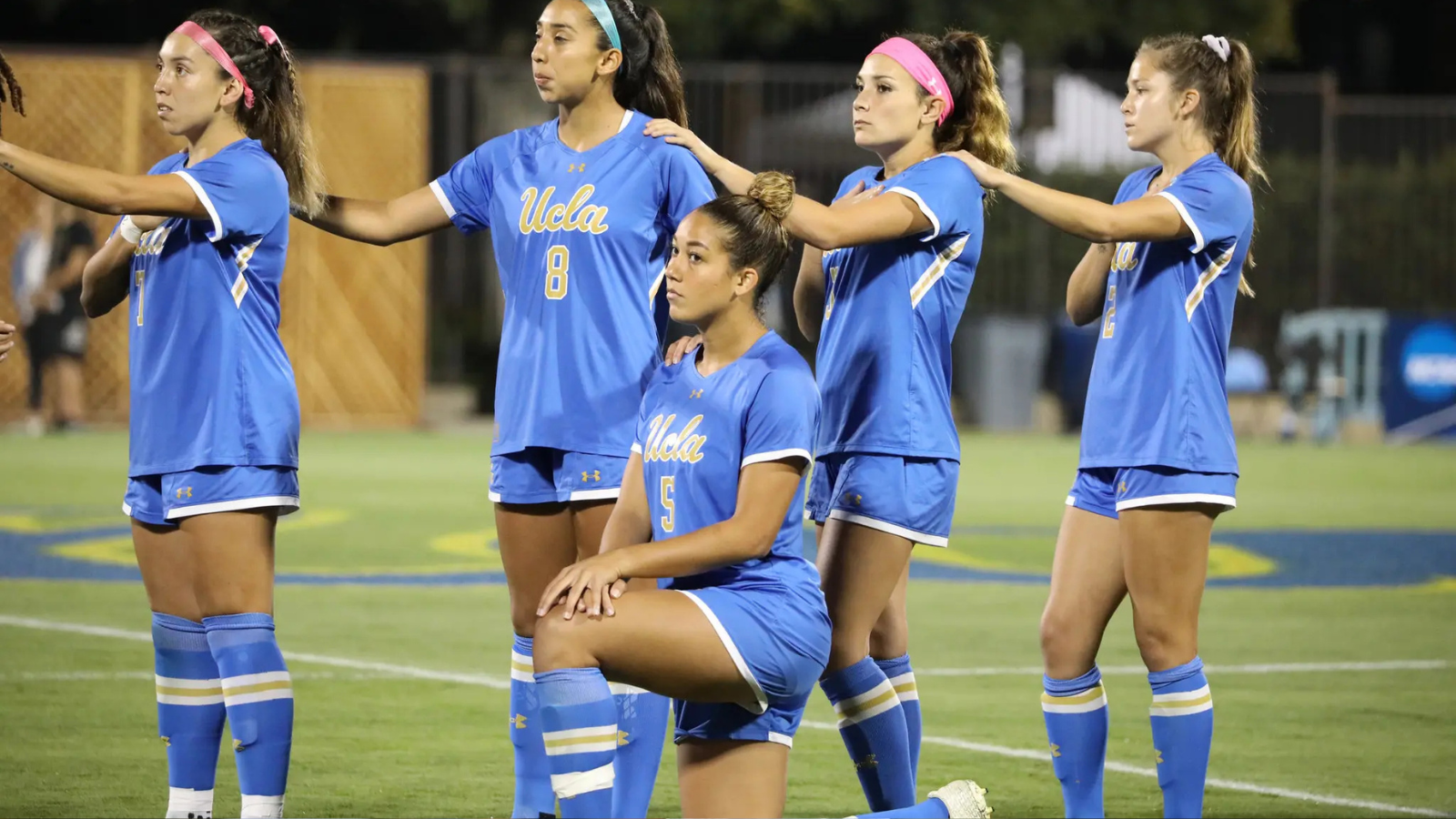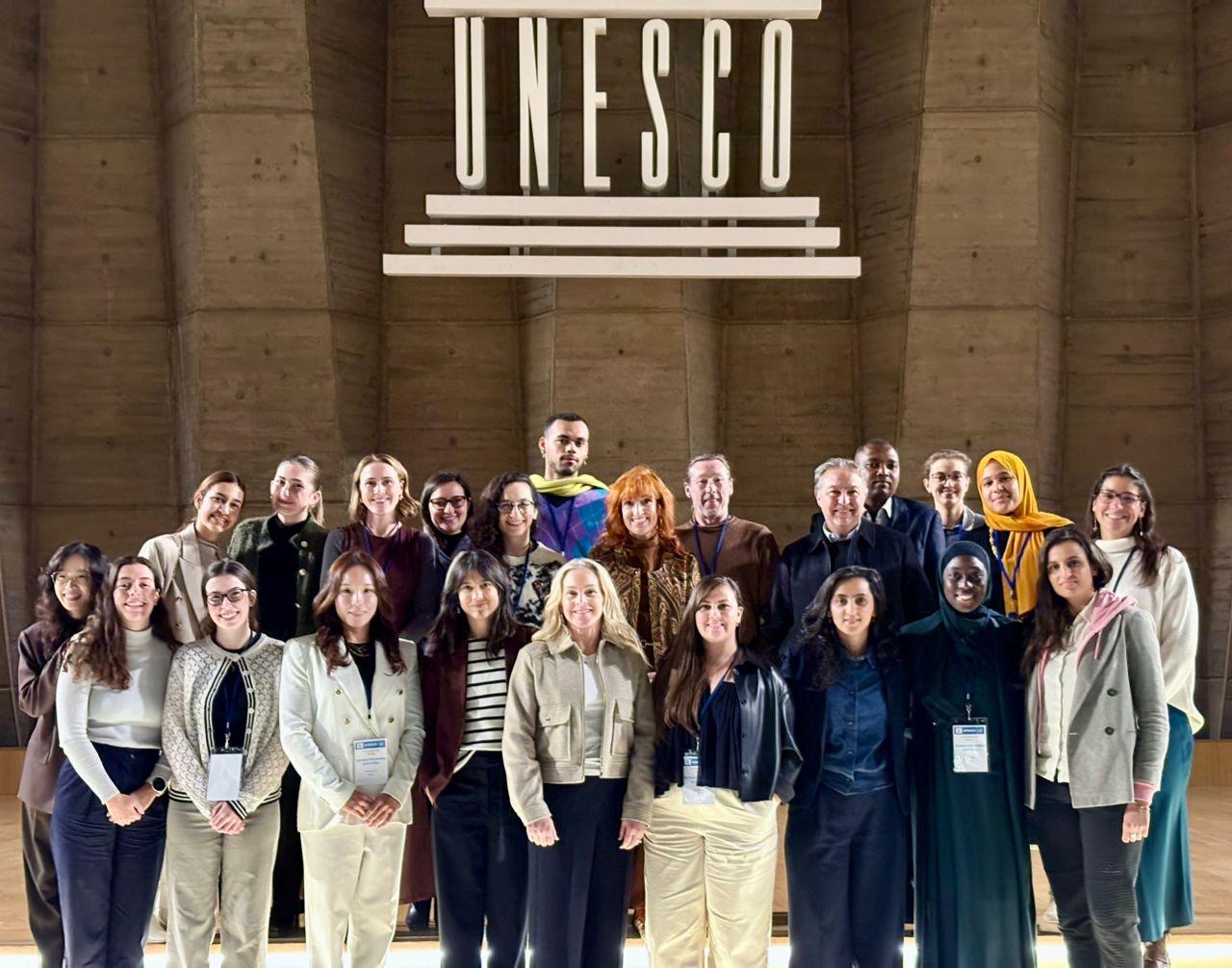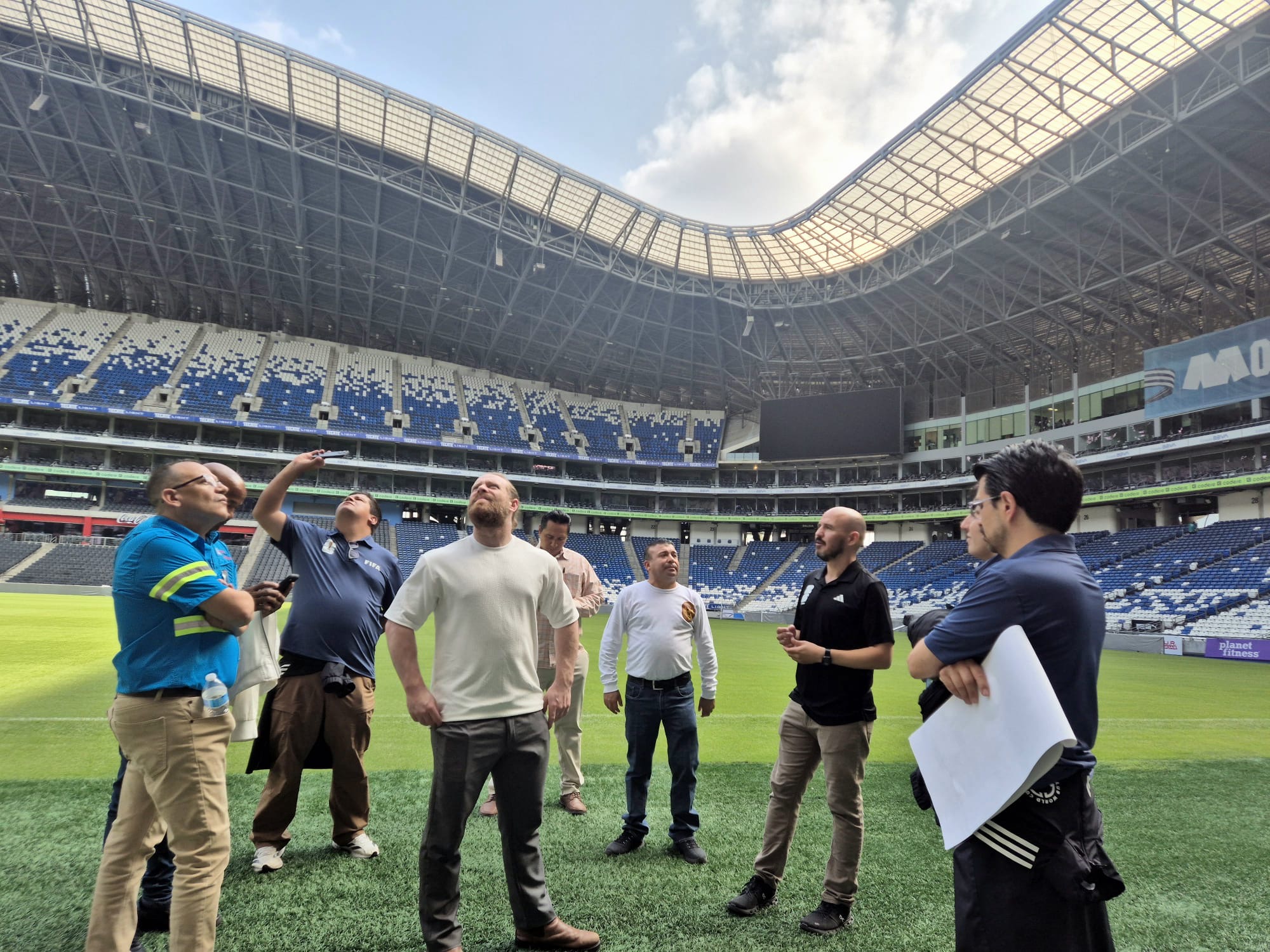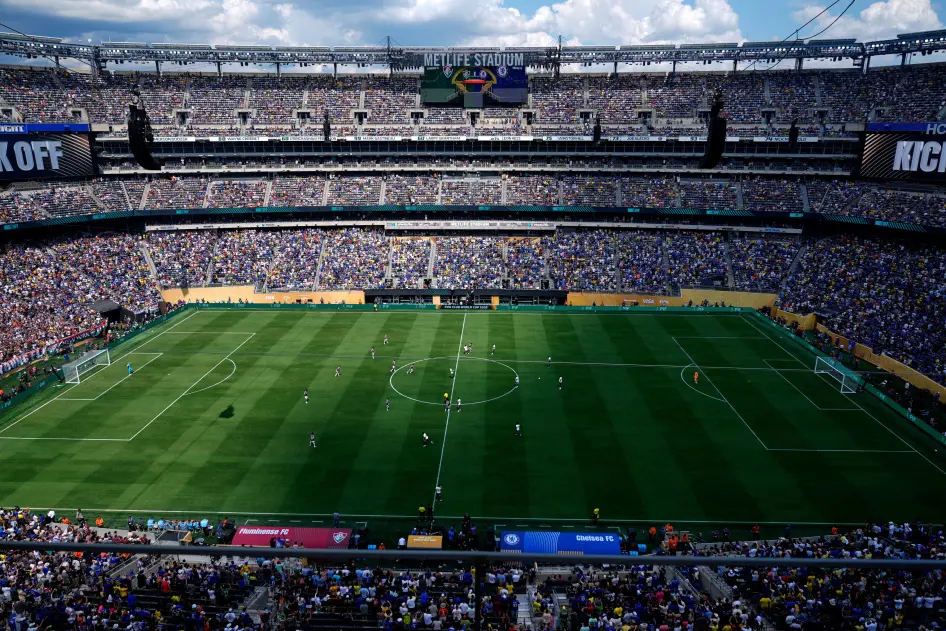Workshop Recap: Athletes as Human Rights Defenders
The Athletes Network for Safer Sports held a workshop on June 27th on the topic of “Athletes as Human Rights Defenders.” Moderated by Network Coordinator Joanna Maranhão, the session explored what athletes face when they speak up for human rights and what practical measures should be put in place to protect them.
“Human rights defenders could be any person that seeks to promote and protect human rights anywhere and everywhere. They can speak for their rights or the rights of other victims.”
Serri (Sura) Mahmood, human rights officer at the Office of the UN High Commissioner for Human Rights (OHCHR) kicked off the session by sharing an overview of the international human rights framework and its connection with the world of sport, including United Nations treaty bodies, charter-based bodies and Human Rights Council.
“When we have any form of racism and racial discrimination in sport it falls under the Convention on the Elimination of Racial Discrimination for instance, and it applies for any athlete who face racism.”
She further explained how other conventions, such as the Convention on the Elimination of Discrimination Against Women (CEDAW), also provide protections in any scenario, including sport. She went on to explain how each of these instruments contain clear human rights protections for human rights defenders.
“It can be any defender, climate activist, non-discrimination activist and also an athlete – there are no minimum requirements to be a human rights defender other than accepting the universality of human rights.”
Sura algo emphasized key rights under the UN Declaration on Human Rights Defenders, including:
- The right to promote and strive for the protection of human rights (Article 1)
- The right to form, join, and participate in NGOs, associations, and groups (Article 5)
- The right to seek, obtain, and share opinions and information on human rights (Article 6)
- The right to freedom of association and assembly (Article 7)
- The right to effective remedy (Article 9)
- The right to protection from retaliation, threats, and discrimination (Article 12)
She finalized her intervention outlining how OHCHR have been helping human rights defenders through case monitoring, internal and bilateral engagement, the treaty body review processes, and through the High Commissioner for Human Rights, Völker Turk, who made the following statement at the UN Human Rights Council on July 1, 2024:
“When athletes use their voice to promote equality in sport, they are human rights defenders. They often speak out at great risk to themselves and to their careers, in a context that has not always been open to criticism from the inside. Because – as in other areas – power dynamics are still very much at play in the sporting world, and more is needed to dismantle them.”
“The idea that athletes are human rights defenders has not been properly processed, understood and integrated in the human rights due diligence of the two major sports governing bodies.”
Antoine Duval, senior researcher at the Asser Institute and founder and editor-in-chief of the Asser International Sports Law blog, then spoke on the circumstances under which athletes are considered human rights defenders, and how sports bodies should be protecting them.
He explained that athletes can become human rights defenders in a range of situations, both internally and externally. Internally, this includes instances where athletes question existing regulations or report sport governing bodies or individuals within those organizations who violate human rights.
Externally, it refers to situations where athletes use the platform of sport to speak out about human rights violations occurring outside the sports world.
“I would argue that all of this falls into what is understood as a human rights defender on the basis of the UN Declaration.”
Antoine then raised the question of what responsibility sport governing bodies have in this regard, highlighting the challenges since the declaration itself primarily target states. Nevertheless, Antoine emphasized that Article 18 of the declaration flags the importance of non-state actions in upholding and embedding these principles – and the importance of the UN Guiding Principles on Business and Human Rights (UNGPs).
Although the UNGPs have been adopted by many sport governing bodies such as FIFA and the International Olympic Committee (IOC), in reality the practices of the sporting world often miss the mark. “FIFA is not really considering players as human rights defenders – they have issued two public statements primarily focusing on journalists and NGOs but not including the players.”
In Antoine’s opinion, the same applies to the IOC on their recently published Human Rights Progress Report 2021-2024, which includes no mention of human rights defenders.
Antoine concluded his intervention by outlining three minimal recommendations for sport governing bodies with regards to athletes as human rights defenders.
- To stop systematically repressing athletes for their human rights advocacy in the framework of sporting competitions, whether at the national or international level;
- To protect and create pathways for athletes who make human rights claims against their own governance – including creating robust whistleblower protection systems; and
- To support organizations such as unions and civil society organizations that support athletes who speak for human rights.
“Many, if not all, still don’t truly understand our human rights that support us in that moment under pressure. So something that can support that will go a long way.”
Joel Wilkinson, former player in both the Australian Football League (AFL) and U.S. National Football League (NFL) explained he chose to speak up while in the field of play came from his own experience of racial abuse in his first professional game. Taking the position to standing against injustice and not settling for things as they were, made Joel feel inspired and motivated to fight for something beyond the harm he was experiencing. “The inspiration for, after myself, standing up is the community every day and knowing the circumstances and the greater black community.”
Joel also spoke about the negative mental health impacts athletes can experience when they speak against racism and injustice, especially for athletes of color. “When we say harm and when we say impact – it is not just the psychological that affect black players, it plays a role as a physiological response as well.”
While the discussion around a holistic approach to mental health is on the arise, Joel said, Black athletes are still not receiving the same level of attention or support. He stressed the need for systems that protect and affirm their ability to fully express themselves.
Joel concluded by saying that if we want to look forward to a world of sport where all participants who experience human rights abuses have the same opportunity to overcome their suffering, it is essential to adopt an intersectional lens that acknowledges the multilayers of harm.
“I was ostracized by my coach. I was ostracized by my team and my league for taking a stand on issues that were very deeply personal to me and to my identities.”
Kaiya McCullough, former U.S. football player in the National Women’s Soccer League (NWSL), recent graduate of Harvard Law School and member of the Athletes Network Advisory Council, shared her personal perspective on how athletes often become human rights defenders simply by the nature of their identity. She reflected on her own experience kneeling during the U.S. national anthem in protest of racism and in solidarity with American NFL player Colin Kaepernick – an act deeply rooted in her identity and values.
While Kaiya felt a strong personal responsibility to take that stand, she was labeled a troublemaker and faced public backlash and ostracization within the sports world, with no systems in place to protect her for taking a stand on issues deeply connected to her identity.
“You know when I was deciding to stand up – or rather, kneel – against police brutality, it was by nature of my identity that I was bringing to the space as a black woman. I felt very called to do that work, and I think it made me very visible in the space, and did label me as a troublemaker, and there weren’t systems in in place while I was playing to be able to protect me for standing up.”
Kaiya also spoke about her experience as a whistleblower on emotional and verbal abuse in the NWSL – which she said she was only able to do because she had decided to retire. She mentioned how many other players in her situation were unable to speak up out of fear for their livelihoods, health insurance, and playing careers.
Looking to the future and reflecting on her own experiences as a human rights defender, Kaiya says that clearer communication around athletes’ rights, available protections, grievance mechanisms, and remedies will empower them to make informed, conscious decisions about breaking the silence and speaking out for human rights.
“Athletes are the ones that are slipping through the cracks.”
Nikki Dryden, two-time Olympic swimmer from Canada and human rights lawyer, shared how her personal experience of harm as an elite child athlete has led to her current work as a human rights lawyer.
While still in the process of recognizing different situations where her rights were violated, she said she chose to respond and cope with the harm by fighting back. Initially using journalism as a platform to speak out about the intersection between sport and human rights, Nikki has continued to dedicate her life and legal expertise to uncovering the many ways athletes are abused and silenced and helping them seek justice.
With 20 years of experience in this work, Nikki noted that more people are now entering the sport and human rights space, which helps ease the sense of isolation. Nevertheless, she emphasized that the risks have only increased, as sport governing bodies have often failed to keep pace with the rise in athlete activism over the last decade. “I think it’s often still dangerous for athletes to speak out… And there’s a lot of reasons for that. A big one is lack of access to legal counsel and free legal counsel.”
Nikki concluded her intervention highlighting the need for more spaces and resources for people fighting for human rights in sports, including affordable legal counsel, mental health support in face of constant failures and backlash from powerful organizations.
“I’m grateful that we have these forums. There are people that want to talk about it and learn about it, and we just have to keep plugging away.”
As our mission at the Athletes Network for Safer Sports is to “create and strengthen safe spaces for people affected by abuse in sport to further healing, amplify each other’s voices, and advocate for systemic change,” we are committed to supporting survivors, whistleblowers and all athlete human rights defenders who speak out against all forms of abuse and violence. Learn more here.






